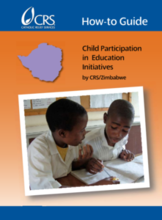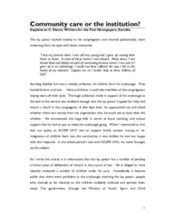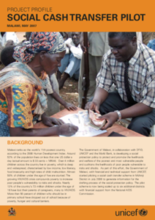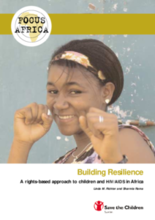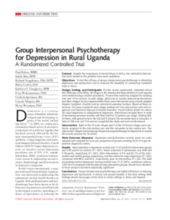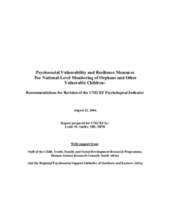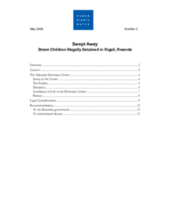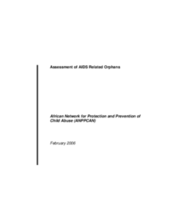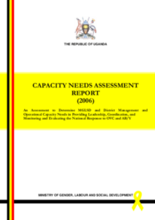Displaying 1481 - 1490 of 1617
A Guide that highlights successful strategies used to facilitate child participation in educational initiatives in Zimbabwe. Real-life examples are provided for illustration, replication and adaptation by other organizations involved in education programmes.
Brief article observing the proliferation of orphanages in Zambia. Points to several models of community-based care as alternatives better able to address the rights and needs of children.
Brief overview of a project designed to give monetary aid to poor families. Program seeks to reduce poverty while promoting health and education.
Examines how a rights-based approach can provide a firm foundation for framing priorities and responses to children and families affected by HIV/AIDS.
Studies the efficacy of Group Interpersonal Therapy for severe depression in HIV-affected communities.
This document discusses the work contributing to the area of psychosocial measurement with regard to HIV/AIDS and provides samples of surveys that can be used in measurement.
This report details the conditions of children held at an unofficial detention center in Kigali, Rwanda, held in overcrowded buildings and suffering from a lack of adequate food, water, and medical care, and subjected to abuse.
This study explores barriers and possible incentives to orphan care in Zimbabwe.
Highlights characteristics among homes caring for children lacking parental care, providing a specified understanding of the educational, financial and supportive environments present for children in foster care arrangements in Kenya
An Assessment to Determine MGLSD and District Management and Operational Capacity Needs in Providing Leadership, Coordination, and Monitoring and Evaluating the National Response to OVC and AB/Y

